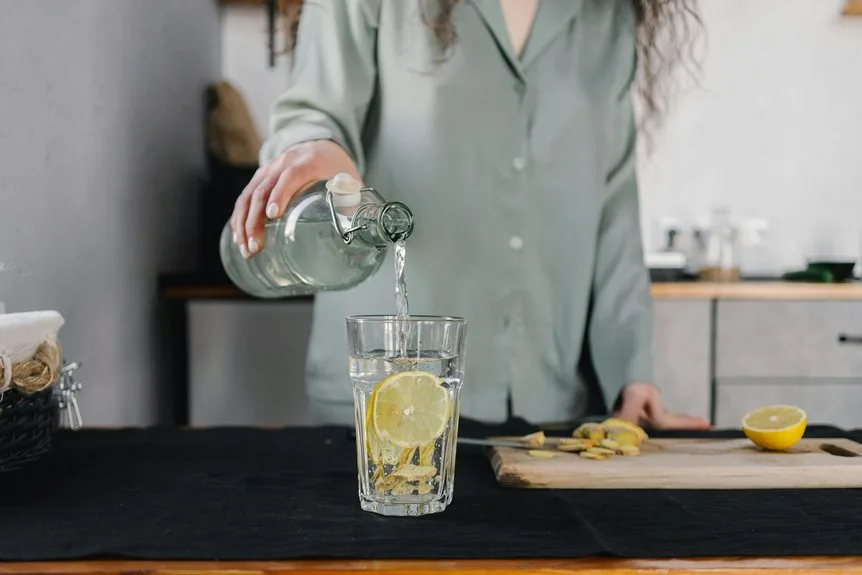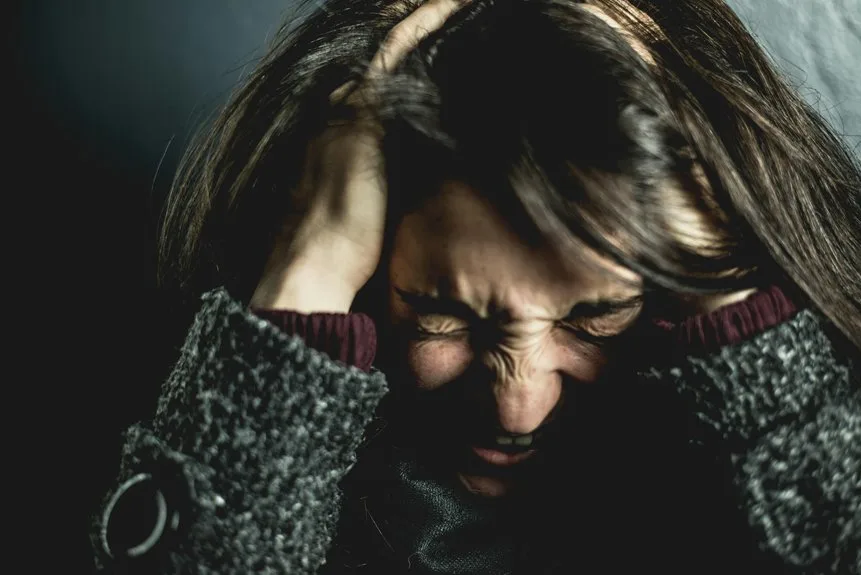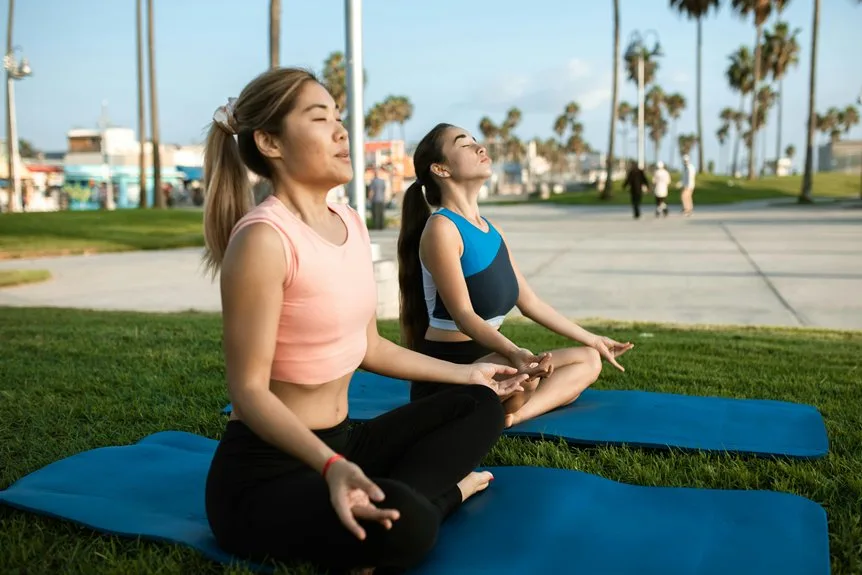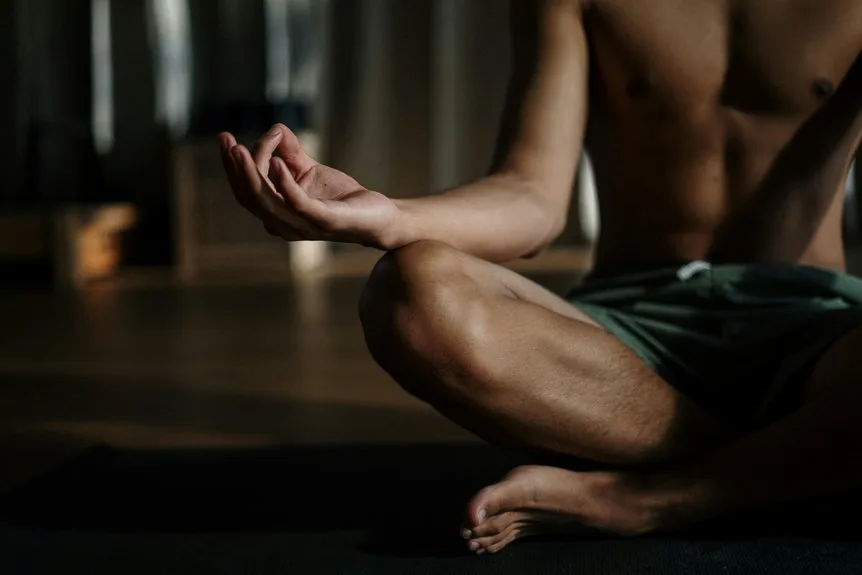Stress and anxiety can sneak up on anyone, leaving people feeling restless or overwhelmed. While some might reach for quick fixes, there’s a growing interest in natural remedies that support the mind and body without harsh side effects. From calming teas to mindful breathing, these strategies offer simple ways to find relief in daily life. Curious how simple changes could make a difference? There’s more to investigate about these gentle, effective approaches.
Understanding Anxiety and Its Impact
Ever wondered why stress can feel so overwhelming at times? Anxiety often plays a big part, making everyday challenges seem much harder. It’s a natural response to stress, bringing feelings of unease, worry, or even fear.
Sometimes, anxiety’s symptoms—like a racing heartbeat, sweaty palms, tense muscles, and shortness of breath—show up even when you wish they wouldn’t. When these feelings stick around, they can affect mental health and make you feel isolated.
Recognizing anxiety is the first step toward seeking treatment, forming connections, and exploring natural remedies that support well-being, helping everyone feel understood and less alone. For a tranquil escape, consider visiting Wilbur Hot Springs, which offers a sanctuary from the fast pace of modern life, allowing individuals to reconnect with themselves and nature.
Benefits of Regular Physical Activity
Regular physical activity works wonders for mental health, thanks in large part to the natural enhancement of endorphins it provides—think of them as the body’s own little happiness messengers. People often notice their mood lifting and stress melting away after a brisk walk or energetic yoga session, making exercise an easy, drug-free way to handle anxiety. With consistent movement, the brain gets a steady supply of these feel-good chemicals, offering both immediate relief and long-term benefits for emotional well-being. An added benefit is that many wellness retreats, like Quiet Mind Mountain Lodge, offer yoga and other physical activities as part of their packages, enhancing relaxation and inner peace.
Mental Health Improvements
Staying active does more than just keep the body in shape; it also works wonders for the mind. Regular physical activity, whether it’s a brisk walk, gentle yoga, or a quick jog, plays a big part in stress management and anxiety reduction. Exercise acts as one of nature’s trusted natural remedies, helping lower cortisol, the body’s stress hormone. This leads to improved mental health, better sleep quality, and a more positive outlook on life. For those looking to combine relaxation with fitness, a stay at the Kenwood Inn and Spa offers a serene environment with luxurious amenities that can enhance one’s well-being.
Endorphin Release Effects
There’s something almost magical about the way a good workout can lift someone’s spirits. When people engage in regular physical activity, their bodies release endorphins, often called nature’s mood enhancers.
These endorphins work wonders, promoting stress relief and mood improvement that can feel like a “runner’s high.” Studies show that just 30 minutes of exercise a few times a week increases these powerful chemicals, leading to a calmer, happier mindset.
Over time, this routine can lower anxiety and depression, making mental well-being feel more reachable. It’s a natural, welcoming way for anyone to feel connected and uplifted. Just like the serene outdoor oasis with a heated pool and comfortable lounge areas at Hotel Indigo Napa Valley, regular physical activity offers a tranquil environment to unwind and rejuvenate.
Mindfulness Meditation for Calming the Mind
When life feels like a whirlwind of worries, mindfulness meditation can offer a welcome pause, inviting calm into the chaos. This practice centers on focusing attention on the present moment, gently noticing thoughts and feelings without judgment.
Studies reveal that mindfulness meditation encourages stress reduction and anxiety relief by helping quiet the mind’s alarm system. Even just ten minutes daily can improve emotional regulation and lower stress hormones.
Mindfulness often involves simple relaxation techniques, like body scans or guided imagery, which nurture a sense of belonging and clarity. Over time, consistent practice cultivates lasting mental well-being and greater resilience to stress.
Deep Breathing and Relaxation Exercises
Deep breathing and relaxation exercises offer a quick and easy way to manage stress, right in the moment when it’s needed most. By focusing on slow, steady breaths and simple techniques like counting or holding the breath, people can calm their hearts and minds, almost as if flipping a switch.
These methods can be practiced anywhere, and when combined with mindfulness, they become a powerful recipe for easing anxiety and restoring a sense of balance.
Benefits of Deep Breathing
A simple shift in breathing can work wonders for stress levels, often more than most people expect. Deep breathing taps into the body’s natural relaxation response by activating the parasympathetic nervous system, leading to immediate stress reduction.
Slow, diaphragmatic breaths help lower heart rate and blood pressure, easing anxiety symptoms and creating a sense of calm. Over time, practicing deep breathing strengthens emotional regulation, making it easier to steer through life’s ups and downs.
Whether at home or in a crowded place, this technique offers a quick, accessible way for anyone to reset and feel supported, right when it matters most.
Techniques for Relaxation Exercises
Although stress can sneak up at any time, there are straightforward relaxation exercises that anyone can try, no yoga mat or fancy equipment required. Deep breathing, for example, is a simple yet powerful way to encourage stress relief. Just a few slow, steady breaths can activate the parasympathetic nervous system, letting your body know it’s time to relax.
Progressive muscle relaxation involves tensing and releasing muscle groups, melting away tension. Guided imagery invites you to visualize peaceful scenes, quieting racing thoughts.
These relaxation techniques, when practiced regularly, build emotional resilience and help people feel more connected, calm, and in control.
The Role of Herbal Supplements
For many people searching for natural ways to manage stress, herbal supplements have become a popular go-to. Herbal remedies like chamomile, lavender, and passionflower are often chosen for their calming effects and ability to reduce anxiety symptoms.
Some turn to kava for quick relief, though it’s crucial to recognize serious safety considerations, especially regarding liver health.
The effectiveness of herbal treatment for anxiety varies, with mixed research on options like valerian and lemon balm.
Because herbal supplements can interact with medications or cause side effects, it’s wise to consult a healthcare provider and choose products from trusted sources.
Exploring Aromatherapy and Essential Oils
Aromatherapy brings a world of calming scents like lavender and ylang ylang, which many people use to ease anxiety and enhance their mood. These essential oils can be enjoyed through diffusers or diluted and applied to the skin.
Though it’s wise to watch out for any allergic reactions or irritation. While the experience of each scent is personal, choosing the right method and using oils safely can make aromatherapy a gentle addition to stress relief routines.
Calming Scents for Anxiety
The power of scent has a way of sneaking into daily life, especially when it comes to easing anxious feelings. Calming scents like lavender essential oil, bergamot, and clary sage play a special role in aromatherapy, offering gentle stress relief and mood enhancement.
The olfactory system, linked directly to the brain’s emotional center, explains why certain smells can quickly shift one’s mood or ease tension. While some find ylang ylang or lavender especially soothing, results can vary.
Still, in a world craving connection and calm, these natural aromas create a comforting sense of togetherness, helping many feel less alone.
Methods of Essential Use
Ever wonder how a simple scent can melt away a stressful day? Aromatherapy utilizes essential oils to create soothing environments, offering a sense of comfort and belonging. Many people use diffusers to spread calming effects through the air, bringing relaxation to shared spaces.
Inhalation, whether from a diffuser or a drop on a handkerchief, allows the olfactory system to send signals straight to the brain’s emotion center, helping with stress reduction. Lavender is a favorite, but bergamot, ylang ylang, and clary sage also join the mix, each inviting a gentle peace.
These methods make stress relief feel like a shared ritual.
Safety and Side Effects
For anyone dipping their toes into the world of essential oils, it’s important to know that a little caution can go a long way. While these fragrant oils can promote relaxation, safe use always comes first.
Some people may experience allergic reactions or skin irritation, especially if oils are used without proper dilution. Ingesting essential oils is not recommended, since it can cause toxicity and other adverse effects, like stomach problems.
Oils such as eucalyptus or peppermint can also interact with medications or worsen breathing issues. Even when used correctly, overdoing it might lead to headaches or dizziness for some.
Cannabidiol (CBD) Oil for Anxiety Relief
Among the many natural remedies gaining attention these days, cannabidiol—better known as CBD oil—stands out for its potential to help people feel calmer without making them feel high.
Derived from hemp extract, CBD oil is showing promise for anxiety relief, with early studies suggesting it may ease social anxiety, panic attacks, and general stress.
Many appreciate its versatility, as it comes in tinctures, gummies, and creams.
Research hints at stress reduction and better sleep, both big wins for mental health.
Still, because CBD can interact with medications and lacks standardized dosing, talking to a healthcare provider first is always smart.
Power of Nutrition and Healthy Eating
How does what people eat actually influence their stress levels? Nutrition plays a bigger role in mental health than many realize. Healthy eating, like including omega-3-rich foods such as salmon and walnuts, helps reduce inflammation and can even elevate mood.
Carbohydrates from oats or whole grains enhance serotonin, the brain’s natural relaxer. A balanced diet with fruits, vegetables, proteins, and healthy fats keeps blood sugar steady, helping people avoid sudden mood swings.
Regular, nutritious meals feed the brain essential vitamins and minerals, like B vitamins and magnesium, which support the nervous system. Good food choices help everyone feel grounded—and less stressed.
Limiting Alcohol, Tobacco, and Caffeine
A closer look at everyday habits reveals that alcohol, tobacco, and caffeine often sneak into routines as quick fixes for stress, but their effects can end up making things worse. These substances might seem to offer instant stress relief, yet their long-term impact can disrupt sleep quality and sabotage anxiety management.
For those seeking a sense of belonging and calm, it helps to keep these facts in mind:
- Alcohol can worsen anxiety and interrupt restorative sleep.
- Tobacco use triggers adrenaline, raising anxiety and panic levels.
- Excess caffeine leads to jitteriness and poor sleep, undermining true relaxation.
Limiting these habits supports lasting well-being.
Journaling as a Therapeutic Tool
Even though stress can feel overwhelming at times, putting pen to paper offers a surprisingly effective way to sort through the mental clutter. Journaling helps people express anxious thoughts and provides a safe space for self-reflection, which leads to better emotional regulation and stress relief.
Studies show that regular writing can ease symptoms of anxiety and depression, shifting negative thinking patterns toward resilience. Whether it’s scribbling in a notebook or typing in a digital journal, this simple habit supports mental health and anxiety management.
Journaling, when adopted daily, becomes a calming ritual, making it easier to feel connected and understood.
Managing Time and Reducing Overload
There’s no denying that modern life can feel like a never-ending juggling act, with to-do lists growing faster than they shrink. Effective time management is key for stress reduction and enhancing mental well-being. Adopting a structured schedule and making small lifestyle changes can help everyone keep their balance. Here’s how:
- Break big tasks into smaller steps—this makes goals feel doable and reduces overwhelm.
- Practice task prioritization—focus on what matters most, tackling important items first.
- Set specific time limits for work and breaks—this prevents burnout and keeps minds refreshed.
Regularly reviewing your plan helps maintain calm and control.
The Importance of Social Connections and Support
While planning out the day and keeping tasks in check can help ease stress, sometimes what really makes a difference is having people to lean on. Social support from friends, family, or support groups brings emotional support and a sense of belonging, enhancing mental health and stress reduction.
Regular conversations and shared laughter can lower cortisol, the body’s stress hormone, helping people bounce back from tough times with greater resilience.
Meaningful relationships—whether it’s a heart-to-heart with a friend or joining a group activity—act like natural armor against anxiety. Building these connections helps everyone feel less alone and more equipped to cope.
When to Seek Professional Help for Anxiety
Sometimes anxiety can feel like an uninvited guest that just won’t take the hint to leave, no matter how many natural remedies or self-help tricks are tried. While everyone hopes for relief, there are moments when it’s important to seek professional help.
If anxiety starts showing its serious side, a mental health professional can help manage symptoms and offer treatment options. Consider reaching out if:
- Anxiety lasts over six months or disrupts daily life.
- Natural remedies don’t help, or symptoms worsen.
- There are thoughts of self-harm or sudden physical symptoms.
A professional evaluation can make all the difference.
Frequently Asked Questions
What Is the Best Natural Treatment for Stress and Anxiety?
Determining the best natural treatment for stress and anxiety depends on individual needs; options include mindfulness meditation, herbal supplements, breathing exercises, physical activity, aromatherapy scents, and dietary adjustments, each offering supportive pathways to promote calm and community well-being.
What Is the 3 3 3 Rule for Anxiety?
The 3-3-3 rule for anxiety is a mindfulness exercise guiding individuals to observe three things they see, hear, and feel. Like breathing techniques, physical activity, aromatherapy practices, or sleep hygiene, it enhances calm and connection.
What Is the Strongest Natural Anti-Anxiety?
Like a guiding light in a storm, many seek the strongest natural anti-anxiety aid. While kava leads in potency, herbal teas, mindfulness meditation, aromatherapy oils, yoga poses, breathing exercises, and acupuncture techniques offer comprehensive support for community well-being.
How to Reduce Anxiety Naturally Fast?
When seeking rapid relief, individuals may find that mindfulness meditation, herbal teas, breathing exercises, physical activity, aromatherapy scents, and progressive relaxation promote a calming environment, helping people feel connected, supported, and quickly alleviating acute anxiety symptoms naturally.
Final Thoughts
Ironically, in a world obsessed with quick fixes and miracle cures, the best remedies for stress and anxiety might just be the simplest—taking a walk, sipping herbal tea, or actually talking to a friend. No magic pills required, just a little mindfulness and a few deep breaths. While it sounds almost too easy, these natural habits offer real relief, reminding us that sometimes, the most powerful solutions don’t come in a bottle, but in everyday moments.







